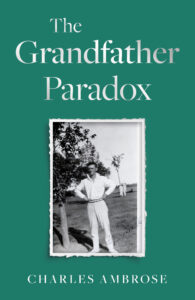Meet the ‘singing psychiatrist’ boosting the UK’s mental health with new creative arts mental health platform

A professional psychiatrist and musician dubbed ‘the singing psychiatrist’ has revealed how she’s working to boost the UK’s mental health by launching the world’s first arts, music, creativity and neuroscience-based integrated mental health platform.
CAPE For Health is an innovative mental health platform designed to combine medicine and neuroscience with creativity for emotional equilibrium created by psychiatrist and professional musician Dr. Ramya Mohan.
Dr. Ramya spends her days as a professional psychiatrist specialising in child and adolescent mental health – having served as an NHS senior consultant child and adolescent psychiatrist since 2008 and receiving a Fellowship award from the Royal College of Psychiatrists in 2018. But, being formally trained in Carnatic and Hindustani classical music, the psychiatrist moonlights as a singer, performing at venues across the UK and India and having her music played on the BBC and BBC Asian Network – explaining that throwing herself into the arts has allowed her to stay on top of her own mental health over the years.
“Going through medical school with exam after exam felt aimless at times, like I was drifting along on a conveyor belt. The free expression of art and music has been so powerful for me on a personal level and such an excellent, healthy outlet. I was then able to take that into my work – one child had been completely mute for six months before I worked with him and I found I was able to communicate so freely with him through drawing. It completely changed my life as a professional and it got me thinking about how the two very different worlds of science and art could be brought together meaningfully and in a standardised manner to support young brains better”.
Ramya went on to create the mental health platform CAPE (Creative Arts for Processing Emotions) to empower the UK’s mental health using creative arts integrated with traditional therapeutic principles.
“The creative arts are a powerful outlet for self-expression. Being able to explore and communicate your inner world and convey your thoughts, emotions and experiences in a way entirely personal to you can provide a release and sense of emotional catharsis. Our country’s mental health is as important as it’s ever been post COVID – but the needs far outweigh the capacity of our current healthcare system.
This project has been driven by my own passions and expertise in both the creative arts and psychiatry. We’ve created a comprehensive and innovative approach integrating a balanced fusion of neuroscience and medicine, language and education, performing arts, visual arts and culture – based on decades of clinical and creative experience, original neuroscientific research and clinical insights into mental health across the east and west. We can provide a comprehensive service that will help to shape the lives of children and young people across the country”.
CAPE users first undergo a rigorous assessment process that gives them insights into what their specific difficulties are, as well as signposting any risks issues to relevant mental health professionals to offer 1-on-1 specialised support. Users will then gain access to a constantly evolving bank of guided, original, scientifically validated resources and creative self-management tools using art, music and drama to process and manage emotions. Workshops, support sessions and creative-arts based community mental health awareness events complement the comprehensive mental health support system the CAPE team offers.
“CAPE can be used to address difficulties associated with autism spectrum disorder, ADHD, insomnia, OCD, depression, anxiety and a whole host of mental health conditions that can stunt one’s quality of life. It can help with stress management, organisation, motivation, emotional processing, self-esteem and resilience and is a lifestyle-based approach intended to complement formalised medical and therapeutic interventions seamlessly.
I’m proud to say that, whilst doing the work I’m passionate about, we’ve helped people through self-harm, those dealing with LGBTQ+ issues and those with a history of mental illness achieve a better quality of life. CAPE is not just music or art therapy – we pull from medicine, psychiatry and several therapeutic principles and modalities based on need and are strongly clinically led. To have the opportunity to build this important new platform is wonderful. We are looking forward to working more closely with individuals and organisations to contribute in our own unique way towards tackling our country’s crippling mental health crisis, particularly for children, adolescents and their families”.
www.CAPEFORHEALTH.com




